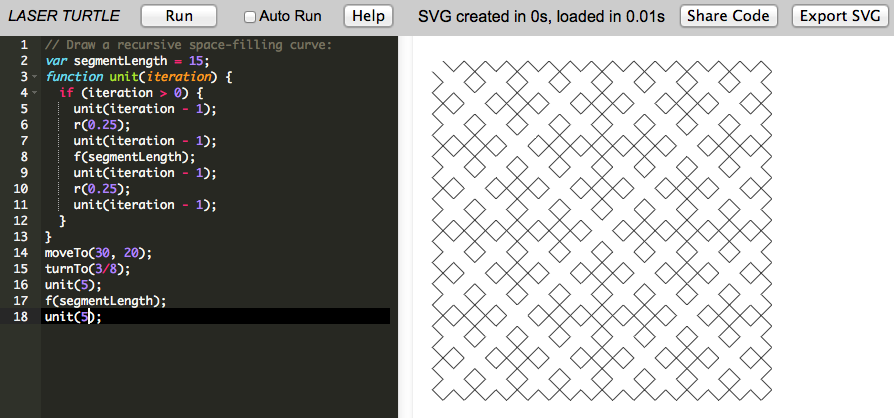MODE IDEA: Interactive fractal tree
http://www.princeton.edu/~aatishb/processing/tree_noleaves/ I know there's about a million of these around, but this one has a fun exploratory interface and the code is quite small.
Work/Changes required:
- It's currently rendering to a canvas... Though it's just lines that can be converted to likely a single path, I wonder if the P5 library can output SVG
- Need to add a click handler to lock the tree down (and likely some kind of nice UI for locking/unlocking)






This issue is meant to be a catch-all for interesting projects that would be fun/interesting to have as a mode to drive RoboPaint. I see these kinds of things all the time but have no centralized location to store them (or time to work on them directly) so I figure they should just show up here as a single comment. Format should be: